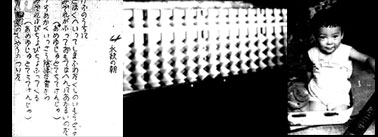Dedication
Introduction
Dan Ariely
Walter Bender
Steve Benton
Bruce Blumberg
V. Michael Bove, Jr.
Cynthia Breazeal
Ike Chuang
Chris Csikszentmihályi
Glorianna Davenport
Judith Donath
Neil Gershenfeld
Hiroshi Ishii
Joe Jacobson
Andy Lippman
Tod Machover
John Maeda
Scott Manalis
Marvin Minsky
William J. Mitchell
Seymour Papert
Joe Paradiso
Sandy Pentland
Rosalind Picard
Mitchel Resnick
Deb Roy
Chris Schmandt
Ted Selker
Barry Vercoe
Hiroshi Ishii
The digital world is a dry one of "technical efficiency-ism." One seldom bemoans the vestiges of an original art lost when the work is converted to standardized, digital format. My passion is to challenge the mainstream: to regain the traces of human presence missing from present-day cyberspace.
Back in my undergraduate days, when I was hosteling my way across Japan, transferring from one overnight train to the next, I always carried a small book of poems by the famous author Miyazawa Kenji in my backpack. I particularly loved one poem, "The Last Farewell," which lamented the death of Kenji's beloved younger sister, Toshiko. I read and re-read these poems until the dog-eared pages were actually fraying.

In the spring of 1995, six months before leaving Japan for MIT, I was finally able to realize my dream of visiting Hanamaki, Kenji's home village, to see his original manuscripts. But "The Last Farewell" I saw there was entirely foreign. For each phrase written there seemed to be a re-writing; for every erasure, a new addition. The words danced together, crowded across the yellowed paper. Strangely, when I stared at the lines traced in that ink, I actually began to see his pudgy fingers gripping the pen, and his rugged hand. I even heard the scratching of the pen point across the fiber of the checkered manuscript paper on which he wrote his characters. The typeset characters in my paperback had never evoked such feelings, and for several minutes I stood before the display case, asking myself, "Is this really the same poem?"
In the process of mass duplication, all those vestiges of the author's physical presence had been wiped away, transforming an artistic work into a piece of "dry" media. But there was one small consolation: my well-worn volume held traces of my own physical presence—the many margin jottings and folded page corners scattered throughout it, and the stains and discolorations from my hands and my adventures. That is why that beat-up old paperback is still among my personal treasures.
Favorite childhood toy (also the world's first computer): an abacus